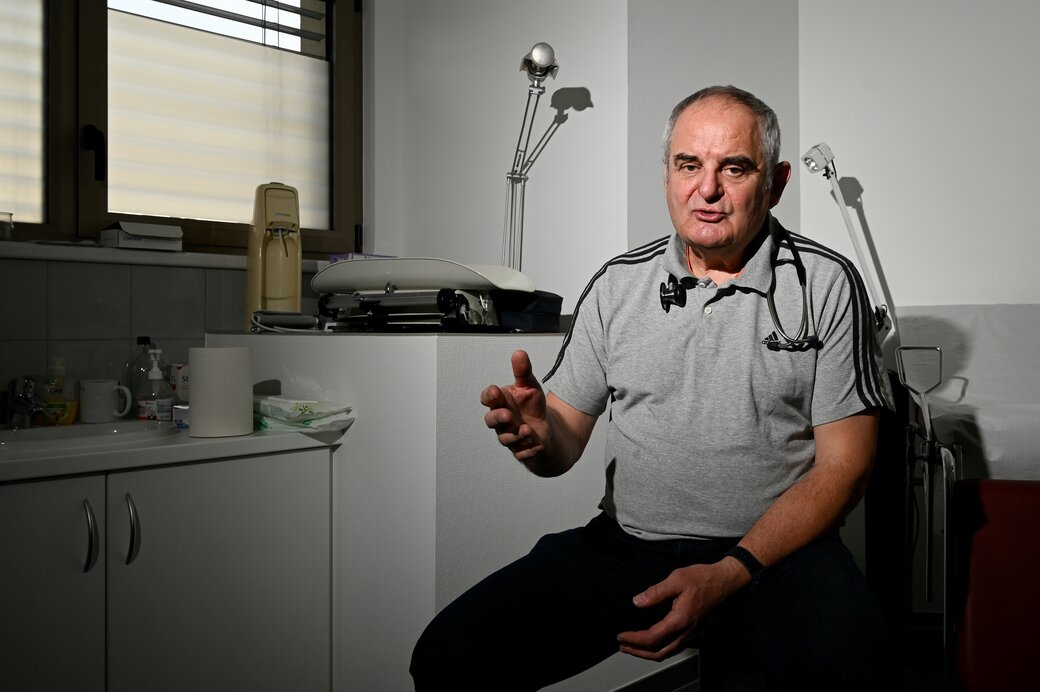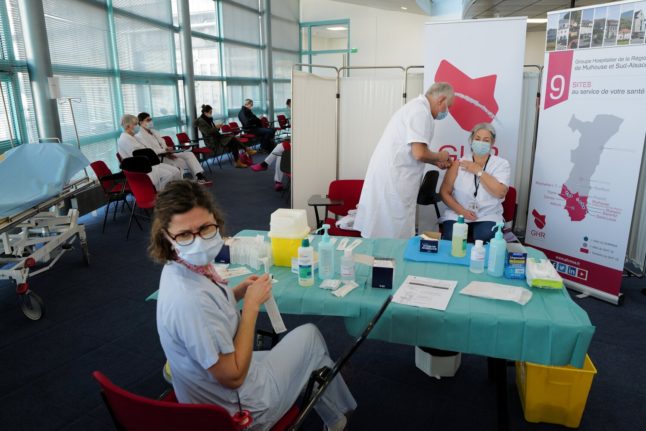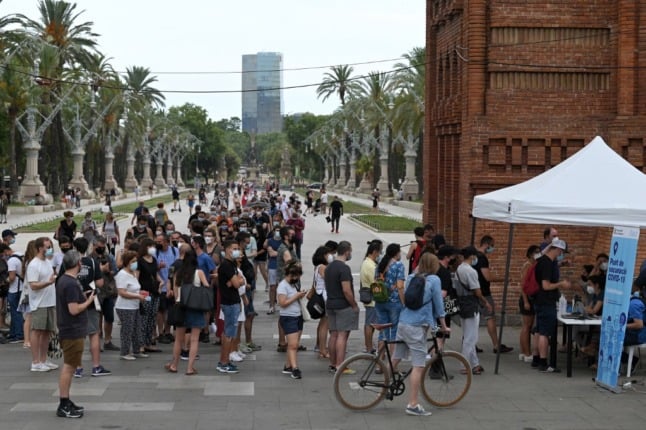“They all think I'm an IT expert!” the 70-year-old joked of her success at securing a rare spot on the online appointment system, which many pensioners are struggling to use.
“Everyone's asking me how I managed it. I was just lucky,” she said at a municipal sports building that opened Monday as the first public vaccination point in the city of 110,000 people.
Across France, more centres like this one are opening their doors amid a blizzard of criticism for the government of centrist President Emmanuel Macron over the slow start to the campaign, which lags behind other major European countries.
Despite the French being among the world's biggest vaccine sceptics, Mulhouse mayor Michele Lutz says demand for the jab is high locally because of the devastating first coronavirus wave in March and April.
Residents are quick to recall the constant buzz of helicopters over the city's deserted streets as patients were transferred from overwhelmed hospitals to facilities elsewhere in France and in neighbouring Germany.
Lutz says her worst moment was visiting the city's overflowing morgue where coffins were piled up in every available space.
“The vaccine has been very, very keenly awaited in Mulhouse,” she told AFP.
“We were the most affected town. This vaccine is a source of hope for the whole of the city.”
She is delighted that the first shots are going into arms and acknowledges the complexity of distributing the Pfizer-BioNTech and Moderna vaccines, which must be stored at super-cold temperatures.
SEE ALSO: MAP – Where to find your nearest vaccine centre
But she says precious time was lost as local authorities like hers clamoured for instructions from the central government.
“We've known since November that vaccinations would be possible,” said Lutz, who is from the opposition Republicans party. “All the work of coordinating, implementing and logistics could have been done a lot earlier than it was.”
With a maximum of around 200 appointments a day currently available in Mulhouse and widespread complaints about the booking system, the mayor's office is receiving regular calls from angry residents.
German advance
Because of Mulhouse's location in the Alsace region bordering Germany, locals are also aware of quicker progress being made on the other side of the mighty Rhine river which divides the neighbours.
Germany has vaccinated 1.4 million people – 75 percent more than the roughly 800,000 people who have had a jab in France, according to the latest figures.
“Here in Alsace we have mixed feelings about Germany,” says local doctor Patrick Vogt, whose grandmother changed nationality seven times during the wars of the late 19th and 20th centuries.

Local doctor Patrick Vogt. Photo: AFP
“We always admire their organisational abilities,” he added.
He says the traditional French ills of over-centralisation and bureaucracy have stifled the rollout.
“We need to change gears,” he said. “It's not good enough.”
France's other major neighbours have also started quicker: Britain has administered more than five million jabs and Italy 1.25 million, according to the ourworldindata.org website.
French defence
The government in Paris has repeatedly defended its strategy, which it acknowledges is slower.
Those currently eligible – principally the over-75s and other vulnerable categories of people – need a doctor's prescription, have to sign legal disclaimers, and are given a period to reflect on their decision.
Retirement and care homes have also been made an early priority, and gaining consent from the family or legal guardians of the infirm can take time.
Prime Minister Jean Castex has insisted that France has “nothing to be ashamed about” and told critics in parliament recently that “you don't judge a match that is going to last 90 minutes in the first seconds”.
He also pointed out that France's testing system is among the best in Europe and that the number of daily new cases and deaths are below major rivals, including Germany, thanks to decisive government action to control the epidemic.
The government looks on course to hit a target of one million vaccinations by month-end.
But for Mulhouse doctor Vogt, time is of the essence as the country faces a possible third wave linked to the spread of more contagious variants.
“Every lost day from not vaccinating is a loss of time and chances for the patients who are going to fill up the hospitals in March and April when this wave arrives,” he warned.



 Please whitelist us to continue reading.
Please whitelist us to continue reading.
Member comments